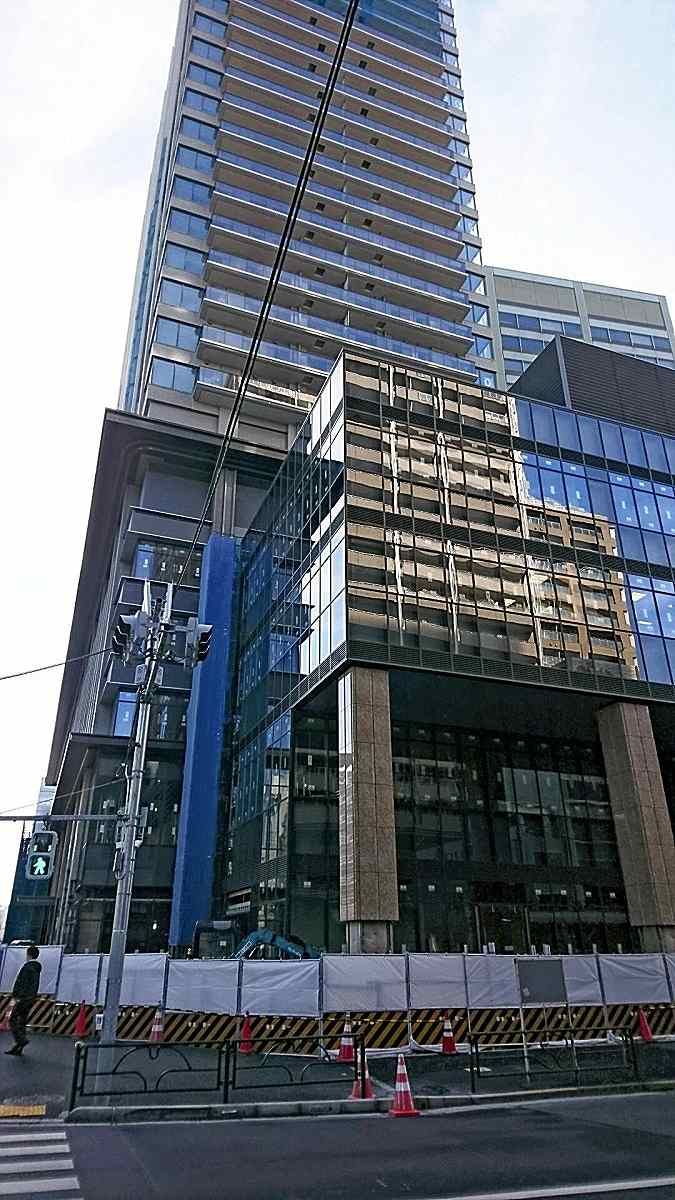
A condominium tower is under construction in Bunkyo Ward, Tokyo.
20:39 JST, February 10, 2021
Prices continue to soar for condominiums in urban areas, with new condos in the Tokyo metropolitan area marking their highest price level in 2020 since the bubble economy period. The concentration of people in Tokyo has eased due to increased telecommuting, but condominiums in convenient locations remain popular, as fewer units are sold and there are more high-income households.
Average cost tops ¥60 million
Families and couples were seen at counselling sessions on condominiums held by the real estate agency Open House Co. in Tokyo’s Iidabashi district at the end of January.
A couple in their 30s were looking for a place in Bunkyo Ward, Tokyo, and said their budget was just under ¥100 million. “We want to buy a unit that’s close to a station so the price won’t fall too much,” one of the pair said.
Last autumn, 115 units immediately sold out at a condominium tower in the Higashi-Ikebukuro district in Tokyo, developed by Nomura Real Estate Development Co. It was the first phase of sales for the 250-unit building, and the average price was ¥110 million. Many of the buyers were dual-income couples or families, the developer said.
According to Real Estate Economic Institute Co., the average sales price for new condominiums in Tokyo and surrounding Kanagawa, Saitama and Chiba prefectures stood at ¥60.8 million, exceeding the ¥60 million for the first time in 30 years since the bubble economy period.
The figure for the Kinki region, covering Osaka, Hyogo, Kyoto, Nara, Shiga and Wakayama prefectures, was ¥41.8 million, up for the third consecutive year.
The Property Price Index released by the Land, Infrastructure, Transport and Tourism Ministry showed that the current average transaction price for condominiums nationwide is 1.5 times higher than that of 10 years ago. The figure for single-family dwellings, mainly in suburban and regional areas, has remained almost unchanged.
Despite moves to suburbs
With the spread of telecommuting amid the coronavirus pandemic, more people have started looking for housing in the suburbs and regional areas. However, the prices of condominiums in urban areas continue to rise.
One reason is a shortage of supply. The number of condo units in the Tokyo metropolitan area peaked at about 95,000 in 2000, but has since declined and hovered around the 30,000 level in recent years. In 2020, when real estate companies temporarily suspended operations due to the pandemic, the figure was about 27,000 units.
Before the pandemic, when the number of foreign visitors was increasing, “It was difficult to secure land because of competition with the hotel industry,” according to an official at a major real estate agency.
Another factor is the oligopoly of major real estate companies, which tend to emphasize their brand value and not lower prices. The so-called Major Seven — Sumitomo Realty & Development Co., Nomura Real Estate Development, Mitsubishi Estate Co., Mitsui Fudosan Co., Tokyu Land Corp., Daikyo Inc. and Tokyo Tatemono Co. — handle just under 50% of all condominium units sold. Their percentage was less than 30% before the collapse of U.S. investment bank Lehman Brothers, but increased after small and midsize real estate sales firms went bankrupt one after another.
Paired loans
According to a survey by Recruit Sumai Co., 60% of buyers of new condominiums in the Tokyo metropolitan area are dual-income households. Although more people are allowed to telecommute now, few companies can operate with employees working fully outside the office. The appeal of urban areas, which give people easy access to workplaces, has therefore not diminished.
With the Bank of Japan’s massive monetary easing measures, interest rates have been kept low, making it easier to get a mortgage. More couples are said to take out pair loans, with each person borrowing money.
Takayuki Miyajima, an economist at Mizuho Research Institute Ltd., said: “It’s not realistic to have all employees work remotely. The prices of condominiums in convenient locations will not fall that much.”
Top Articles in Business
-

Prudential Life Insurance Plans to Fully Compensate for Damages Caused by Fraudulent Actions Without Waiting for Third-Party Committee Review
-

Narita Airport, Startup in Japan Demonstrate Machine to Compress Clothes for Tourists to Prevent People from Abandoning Suitcases
-

Japan, U.S. Name 3 Inaugural Investment Projects; Reached Agreement After Considerable Difficulty
-

JR Tokai, Shizuoka Pref. Agree on Water Resources for Maglev Train Construction
-

Toyota Motor Group Firm to Sell Clean Energy Greenhouses for Strawberries
JN ACCESS RANKING
-

Japan PM Takaichi’s Cabinet Resigns en Masse
-

Japan Institute to Use Domestic Commercial Optical Lattice Clock to Set Japan Standard Time
-

Israeli Ambassador to Japan Speaks about Japan’s Role in the Reconstruction of Gaza
-

Man Infected with Measles Reportedly Dined at Restaurant in Tokyo Station
-

Videos Plagiarized, Reposted with False Subtitles Claiming ‘Ryukyu Belongs to China’; Anti-China False Information Also Posted in Japan




















